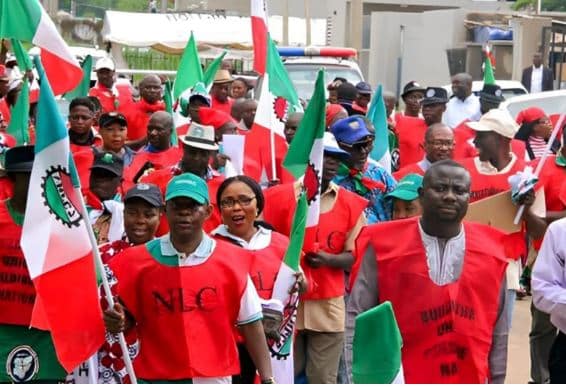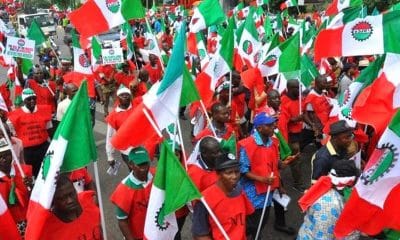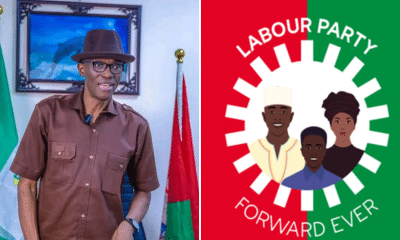Nigeria News
NLC Confirms Payment Of ₦70,000 Minimum Wage In Edo

The Edo State government has officially commenced paying its workers a new minimum wage of ₦70,000, a significant increase from the previous ₦40,000.
Naija News reports that the Chairman of the Nigeria Labour Congress (NLC) in Edo State, Odion Olaye, confirmed the implementation of the new wage and lauded the state government for keeping its promise to the workforce.
Governor Godwin Obaseki announced the wage increase during the inauguration of the Labour House on April 29, 2024, as a response to the harsh economic conditions exacerbated by the federal government’s removal of the fuel subsidy and other economic measures.
Speaking to the press, Olaye expressed his appreciation for the governor’s commitment to worker welfare.
“I can confirm to you that the salary increase has been effected and workers are now earning N70,000 as minimum wage. I commend the governor for this,” he said.
He also encouraged the state’s employees to respond to the government’s gesture by intensifying their efforts to enhance its economic prosperity.
“I will also urge the workers who are wealth creators to reciprocate the kind gesture of the governor and redouble their efforts towards making the state great,” added Olaye.
Naija News earlier reported that the Commissioner for Communication and Orientation, Chris Nehikhare, also commented on the new minimum wage, noting that the May salaries reflect the updated wage scale.
“The Edo State government has paid the May salaries of workers in the state, reflecting the implementation of the N70,000 new minimum wage,” Nehikhare stated.
He emphasized that this adjustment is part of the Obaseki administration’s broader effort to alleviate the financial burden on workers due to recent national economic policies.
“This is in fulfilment of the promise made by Governor Godwin Obaseki to increase the minimum wage from N40,000 to N70,000, beginning this May, as part of efforts to cushion the impacts of the harsh economy occasioned by fuel subsidy removal and other economic decisions by the Federal Government,” Nehikhare explained.












